Tokyo International School Group also hires, trains, and manages foreign teachers who support our curricula. With over 20 years of experience in the international school and English education industry, we are able to facilitate everything from visa issuance to creating employment contracts and handling employment concerns for foreign teachers in Japan.
ENGLISH
Philosophy
Inspire confident, self-expressive, English communicators to instill personal and social responsibility.
Nurture the ability to take responsibility for one’s self and society while expressing one’s self in English with confidence.
Today, we live in a borderless world where everything changes rapidly. Whether we like it or not, the 21st century is full of surprises and changes. We have no clue what the future holds for us, and things are unstable to say the least. In such times, what should we expect from the field of education?
We believe that education is the ability to learn actively and create our own paths. We endeavor to nurture the ability to learn, respect, cooperate, take action, solve problems, and contribute to world peace.
We believe that this is the ideal education model for the 21st century.
Our schools
Tokyo International School Group began running the “Tokyo International School Kindergarten,” the “Tokyo International School Afterschool” and the “Tokyo International School Learning through English” programs from 2012. In 2013 TIS Group turned these programs into a franchise business platform.
Now we have 2 model schools and 5 franchise schools throughout Japan.
Tokyo International School Kindergarten
TIS has drawn a lot of interest over the years due to our unique approach and quality of education. We are often asked, by Japanese parents, if TIS provides any educational options for non-English speaking children. These parents are looking for opportunities for their children to not only increase their English language ability but also take part in a forward thinking, internationally minded program.
Rather than learning English, our students learn through English. By taking the TIS style of education and adapting it for Japanese children, using the lessons we have learnt teaching through English over the past 32 years, we have created a curriculum that will allow children to build a solid foundation in English language communicative ability. After three years of studying 5 days per week the children, having gained over 2000 hours of native language instruction, are able to communicate confidently and freely in English.
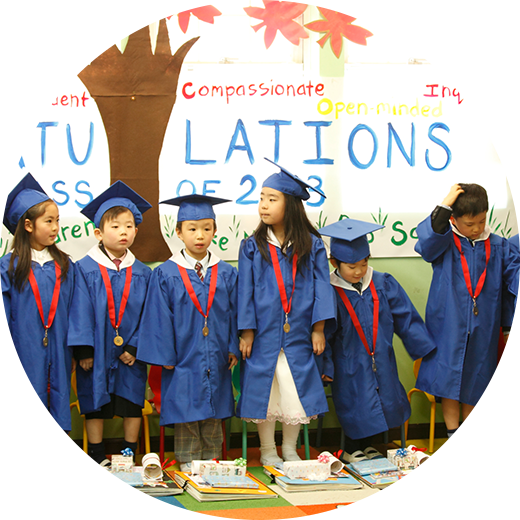
Tokyo International School Afterschool
Tokyo International School Afterschool (TISAS) provides an international school education for non-native English speaking children in an immersion environment. Students attend for at least three hours per day, three days per week, from 4pm to 7pm. By taking an inquiry-based approach, nurturing essential 21st Century skills and emotional intelligence, and catering to the students’ multiple intelligences, we are able to prepare our students for an ever changing world.
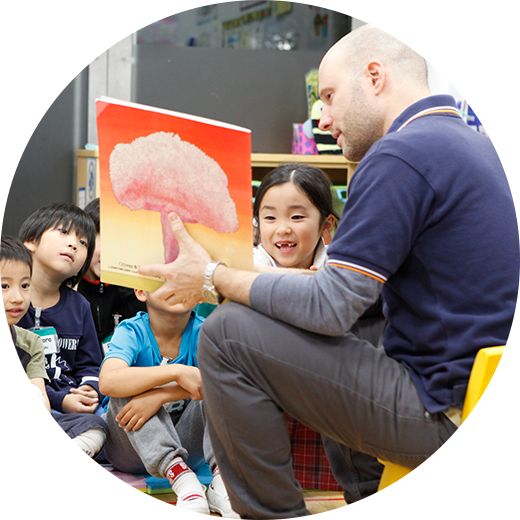
Tokyo International School Learning Through English
Tokyo International School Group also provides EFL classes using our Learning Through English (LTE) curriculum. This program is run at all of our franchise locations. Due to other commitments, there are a large number of students who are only able to attend our schools once per week. The LTE classes will be broken into age and level appropriate classes and are 90 minute, 110 minute or 180 minute classes during the week, and 180 minutes in length on Saturdays.
Global skills we nurture
1
Leadership
&
Responsibility
2
Emotional Literacy
3
Creativity
&
Innovation
4
Self-Management
5
Critical Thinking
&
Problem Solving
6
Communication
&
Collaboration
7
Flexibility
&
Adaptability
8
English Ability
List of Curriculum
KG (Kindargarten)
Ages: 3〜5
Kindergarten for children going into Japanese elementary schools. In 3 years, from junior to senior level, we aim to nurture solid English abilities and global skills in our students.
AS (After school)
Ages: 6〜10
An after school program for Japanese elementary students. Our goal is to establish a solid Japanese identity and nurture global skills, simultaneously. In this inquiry learning program, the goal is not to study English, but rather to study in English.
LTE
(Learning Through English)Toddler
Ages: 3 months
〜3 years old
An inquiry learning program targeting the curiosity of toddlers.
LTE
(Learning Through English) Kids
Ages: 3〜6
In this new, inquiry program, our students will study topics in English, instead of simply studying English.
LTE
(Learning Through English) Junior
Ages: 6〜12
In this new, inquiry program for elementary school students in Japan, we will study topics in English, instead of simply studying English.
Hiring/managing foreign teachers
Hiring teachers
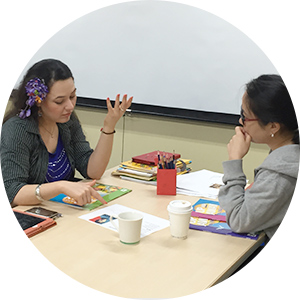
- 1)First, we begin by suggesting the appropriate amount of teachers necessary for each English program.
- 2)Next, we develop job advertisements and begin recruiting in and out of country.
- 3)We then screen our applicants based on their documents by checking teaching licenses, experience, and other criteria set forth by JIEC.
- 4)We then conduct interviews with candidates who pass the document screening process.
- 5)After the interviews, we make final decisions.
- 6)We then assist with visa issuance, help our instructors find housing, and proceed with other procedures, as necessary.
Training for teachers
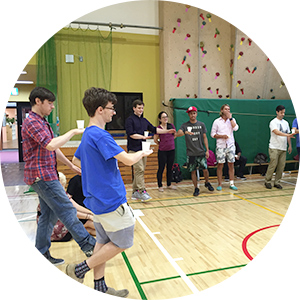
Training is essential to teach curricula set by Tokyo International School Group. Before going into the actual classroom, our teachers will receive training on class management, teaching, and other skills. We have professional trainers who conduct thorough training sessions, every year.
Management of teachers
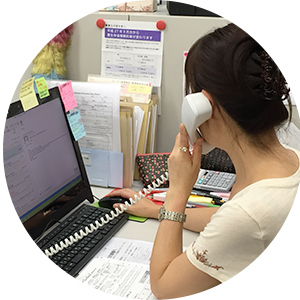
We support our teachers comprehensively including compensation, visa updates, paid holidays, hiring criteria adjustments, evaluation, motivation management, daily life and more.
We guide and inform foreign teachers about Japanese customs regarding work contracts and cultural values, so that they can adapt smoothly to the Japanese work environment.